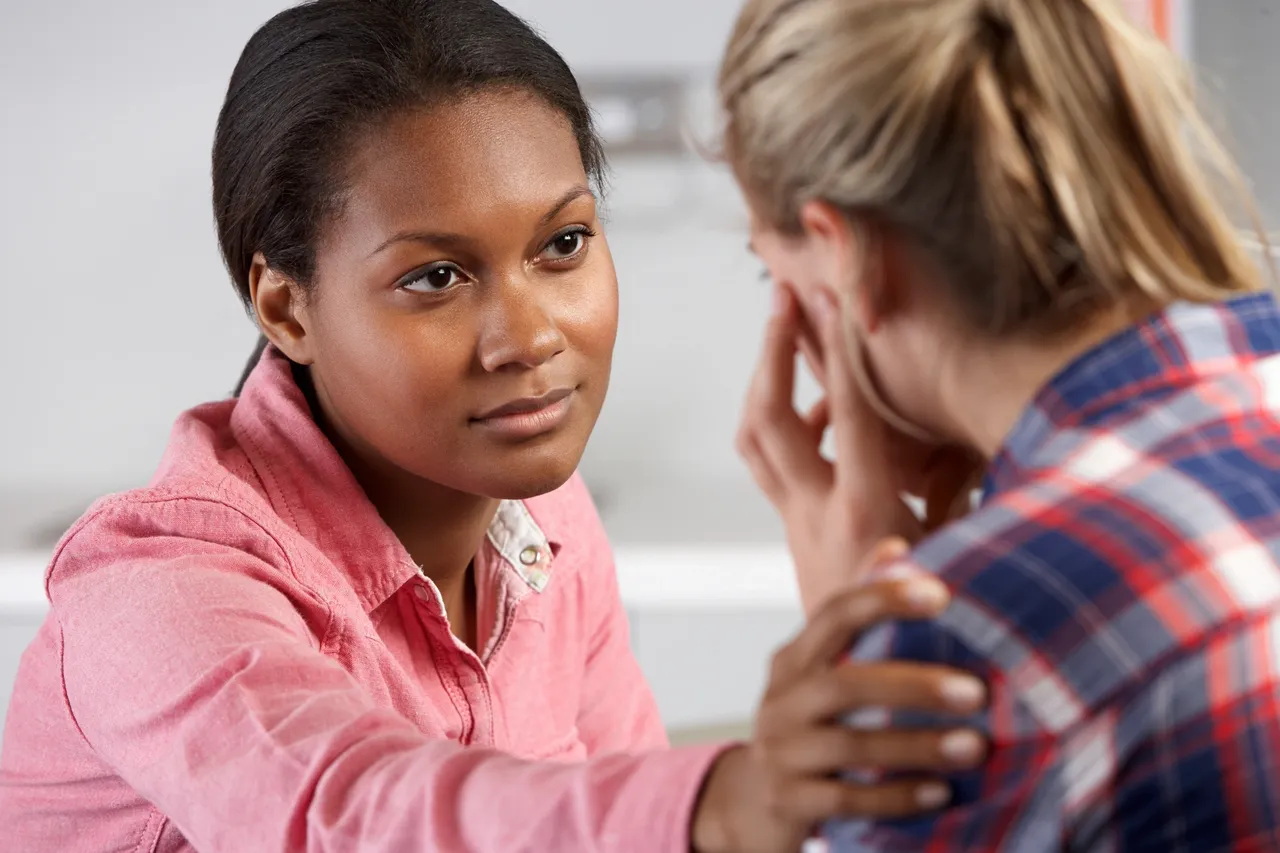Watching your teen prepare to leave residential care can feel both hopeful and overwhelming. The transition from a structured therapeutic environment, such as the one provided by our leading teen mental health program, to independent living presents unique challenges that most adolescents don’t face. Your teen has worked hard on their teen mental health journey, and now they need practical tools to thrive in the real world.
Life skills lessons become the bridge between treatment success and long-term independence. These aren’t just basic tasks – they’re confidence-building experiences that reinforce your teen’s sense of capability and self-worth. When teens master essential skills like budgeting, cooking, and navigating community resources, they’re not just preparing teens for life after residential care; they’re building the foundation for sustained mental wellness.
This guide explores ten crucial life skills to teach teens as they transition to independence. You’ll discover:
- Practical strategies for teaching life skills to teens in meaningful ways
- How these skills directly support ongoing mental health stability
- Specific techniques that work best for teens with residential care backgrounds
- Resources to help your family navigate this important transition
Your teen’s journey doesn’t end with residential care – it transforms into something beautiful and sustainable. It’s important to remember that while residential treatment can be a significant step in addressing issues like teen depression, the goal is always to equip them with the necessary skills for a successful transition into adulthood.
Understanding the Needs of Teens Leaving Residential Care
Every teen’s journey from residential care to independence looks different, which is why an individualized care plan becomes the cornerstone of a successful transition. These personalized roadmaps take into account each young person’s unique strengths, challenges, trauma history, and goals. Rather than applying a one-size-fits-all approach, effective care plans recognize that some teens might excel at academic skills but struggle with emotional regulation, while others may have strong social connections but need support with practical life tasks.
Mental health services remain crucial during this vulnerable transition period. The stability and therapeutic support that residential care provides doesn’t simply disappear when a teen steps into independent living. Integrated therapeutic programs help bridge this gap by:
- Continuing trauma-informed care in community settings
- Providing crisis intervention resources when challenges arise
- Maintaining therapeutic relationships that teens have built during their residential stay
- Offering specialized counseling for transition-related anxiety and adjustment difficulties
For instance, our Teen Mental Health Program at Build Bright Care Group in Granada Hills, CA, is designed to support teens ages 12-17 during this critical phase. This program includes mental health services for conditions such as teen autism and bipolar disorder, ensuring comprehensive support tailored to individual needs.
In addition to mental health support, life skills training is essential for youth leaving residential care. These skills equip them with the tools necessary for independent living, such as budgeting, cooking, and job searching.
Support services for youth leaving residential care extend far beyond basic case management. Mentoring relationships create vital connections with adults who understand the unique challenges these teens face. These mentors often become trusted guides who can offer practical advice, emotional support, and advocacy when systems feel overwhelming. Peer support groups also provide invaluable connections with other young people who share similar experiences, reducing isolation and building confidence through shared understanding.
Moreover, incorporating family support in teen mental health can significantly enhance the effectiveness of these transition services.
1. Personal Finance Skills: Building Financial Independence
Managing personal finances becomes an essential skill for survival when teenagers start living independently. Many young people leaving residential care have never managed money on their own, making this transition especially difficult without proper preparation.
Budgeting: The Key to Financial Stability
Budgeting is the foundation of financial stability. Teenagers need practical experience in creating monthly budgets that include:
- Fixed expenses such as rent, utilities, and phone bills
- Variable costs like groceries, transportation, and personal items
- Emergency savings for unexpected expenses
- Goal-oriented savings for future needs or desires
Income Management: Understanding Where Money Comes From
Income management involves more than just receiving money. Teenagers can benefit from learning how to track various sources of income, whether it’s from part-time jobs, government assistance, or family support. Teaching them to distinguish between needs and wants can help prevent overspending during those crucial initial months of independence.
Bill Payment Strategies: Avoiding Financial Pitfalls
It’s important to pay special attention to strategies for paying bills. Setting up automatic payments, understanding due dates, and managing late fees can help avoid financial disasters. Even basic concepts like reading utility bills or understanding rental agreements require clear instruction.
Debt Recovery Planning: A Path to Financial Freedom
For teenagers who may have incurred debt while in care, having a plan for debt recovery offers hope and practical steps toward achieving financial freedom.
2. Meal Preparation and Nutrition Management
Food becomes more than just something to eat when teens learn how to take care of themselves. Cooking classes specifically designed for teens leaving residential care focus on practical skills that are budget-friendly, helping them feel confident in the kitchen and encouraging healthy eating habits.
Practical Cooking Skills for Teens
Reading recipes goes from being confusing to easy-to-follow when teens practice with simple, nutritious meals. Starting with basic dishes like pasta with vegetables, scrambled eggs, or hearty soups helps them learn essential cooking techniques. These lessons emphasize understanding ingredient measurements, cooking times, and food safety practices.
Empowering Teens Through Grocery Shopping
Grocery shopping becomes an empowering experience when teens learn to:
- Create meal plans based on weekly budgets
- Compare unit prices to find the best deals
- Read nutrition labels to make informed choices
- Shop seasonal produce for maximum value and nutrition
Teaching teens how to prepare balanced meals using affordable ingredients such as beans, rice, frozen vegetables, and lean proteins sets them up for long-term health success. These practical cooking skills create a sense of accomplishment while ensuring they can maintain proper nutrition on limited budgets.
3. Home Maintenance and Household Management
Creating a comfortable, clean living space becomes second nature when teens master essential home maintenance skills. These life skills for teens form the foundation of independent living and help build confidence in managing their own space.
Basic Cleaning Essentials:
- Daily tasks like making beds, washing dishes, and tidying common areas.
- Weekly deep cleaning including vacuuming, mopping, and bathroom sanitization.
- Understanding which cleaning products work best for different surfaces.
Laundry Mastery:
Learning to sort clothes by color and fabric type prevents costly mistakes. Teens need hands-on practice with washing machines, dryers, and proper detergent measurements. For those without in-unit laundry, laundromat use requires additional skills like bringing correct change, understanding machine cycles, and staying safe while waiting.
Simple Repairs and Maintenance:
Basic troubleshooting saves money and builds self-reliance. Teens should learn to unclog drains, replace light bulbs, tighten loose screws, and identify when professional help is needed. For instance, knowing how to handle minor issues with appliances can prevent the need for expensive repairs such as a dryer malfunction which often incurs a hefty cost. These skills prevent small issues from becoming expensive problems and create a sense of ownership over their living environment.
4. Effective Communication Skills for Social Integration
Strong communication skills are essential for building meaningful relationships and succeeding in both personal and professional settings. Teens transitioning from residential care often need focused practice in these essential social skills for teens to feel confident in their interactions.
Verbal Communication Skills
Verbal communication involves more than just speaking clearly. It includes teaching teens how to:
- Express their thoughts respectfully
- Ask clarifying questions
- Engage in active listening
These skills create opportunities for genuine connection. Additionally, it’s important to pay special attention to phone conversations, as many young people may feel anxious about making appointments, calling employers, or handling important business calls without the visual cues they’re used to in texting.
Non-Verbal Communication Skills
In addition to verbal skills, non-verbal communication is equally important for successful interactions. This includes:
- Being aware of body language by maintaining appropriate eye contact and open posture
- Respecting personal space by understanding cultural and social boundaries
- Matching facial expressions to situations appropriately
Practicing Face-to-Face Interactions
Face-to-face interactions can be challenging, so it’s crucial to practice these skills in safe environments. Role-playing scenarios such as job interviews, meeting new neighbors, or resolving conflicts with roommates can help teens develop confidence. These skills become especially vital when teens need to advocate for themselves with landlords, healthcare providers, or potential employers.
5. Time Management and Organizational Skills
Learning time management becomes crucial when teens step into independent living without the structured environment of residential care. These foundational skills help young people balance work, personal responsibilities, and self-care while building confidence in their ability to handle adult responsibilities.
Creating Daily Routines That Work
Successful goal setting starts with establishing consistent daily patterns. Teens benefit from:
- Morning routines that include personal hygiene, breakfast preparation, and reviewing the day’s priorities
- Evening wind-down periods for reflection and preparing for the next day
- Weekly planning sessions to organize appointments, work schedules, and personal time
6. Employment Readiness: Preparing for the Workforce
Entering the job market feels daunting for any teenager, but teens leaving residential care face unique hurdles that require specialized preparation. Many haven’t had traditional opportunities to observe workplace dynamics or develop professional skills through family connections and casual employment experiences.
Job application workshops become essential training grounds where teens learn to craft compelling resumes that highlight their strengths while addressing potential gaps in work history. These sessions teach practical skills like:
- Translating life experiences into valuable job qualifications
- Writing cover letters that showcase resilience and determination
- Completing online applications and understanding employment forms
- Building professional email communication skills
For some, these challenges may be compounded by issues such as Teen ADHD, which can affect focus, organization, and stress management during this critical transition period. Fortunately, with the right support and specialized programs, these hurdles can be effectively managed.
Mock interview workshops provide safe spaces to practice answering challenging questions about their background. Teens rehearse explaining their residential care experience positively, focusing on personal growth and developed skills rather than past difficulties.
Role-playing exercises help build confidence in professional interactions, from firm handshakes to appropriate eye contact. Teens practice discussing their goals, asking thoughtful questions about positions, and presenting themselves as capable candidates ready to contribute meaningfully to potential employers.
7. Self-Care Practices Promoting Physical Health
Self-care for teens goes beyond just being clean — it’s about boosting confidence and creating habits that benefit both physical and mental health. Teens who are leaving residential care need practical skills to take care of their health on their own.
Daily Hygiene Routines
The basis of self-care is having daily hygiene routines:
- Setting up consistent morning and evening rituals
- Knowing how to take care of teeth, including flossing and regular checkups
- Understanding basic skincare practices suitable for their age and skin type
- Keeping clothes clean and knowing when to get professional grooming services
Managing Illness Basics
When living independently, it becomes vital to know how to manage common illnesses. Teens should be aware of how to:
- Identify typical symptoms and when it’s necessary to see a doctor
- Use a thermometer correctly and understand how to handle fevers
- Put together a basic first-aid kit with important items like bandages, pain relievers, and antiseptic
- Find out about urgent care facilities and grasp the basics of health insurance
Teaching these skills requires hands-on practice rather than just talking about them. By acting out situations such as making a phone call to a doctor’s office or organizing a medicine cabinet, teens can feel more ready for real-life scenarios. When young individuals learn how to properly care for their bodies, they establish the groundwork for lifelong habits that promote wellness in all areas of independent living.
8. Transportation Skills Enhancing Mobility
Getting around independently opens doors to employment, education, and social connections. Public transit skills for teens become essential tools for building confidence and expanding their world beyond residential care boundaries.
Teaching Navigation
Teaching navigation starts with route planning using apps and transit maps. Teens learn to identify bus stops, read schedules, and calculate travel times with buffer periods for unexpected delays. Practice runs during different times of day help them understand how service frequency changes between peak and off-peak hours.
Safety Awareness
Safety awareness forms the foundation of public transportation training:
- Staying alert to surroundings and trusting instincts about uncomfortable situations
- Keeping valuables secure and avoiding displays of cash or electronics
- Positioning themselves near drivers or transit security when feeling unsafe
- Having backup plans when services run late or routes change unexpectedly
9. Character Judgment and Social Awareness
Recognizing harmful relationships becomes crucial when teens step into independent living situations where they’ll encounter diverse personalities without the protective oversight of residential care staff. Teens need concrete tools to identify red flags in both romantic and platonic relationships.
Teaching teens to recognize emotional manipulation helps them spot patterns like:
- Isolation tactics – when someone tries to separate them from friends or support systems
- Controlling behavior – excessive monitoring of activities, finances, or social interactions
- Verbal degradation – name-calling, threats, or constant criticism disguised as “help”
- Physical warning signs – pushing, grabbing, or any unwanted physical contact
Social awareness extends beyond romantic relationships to include recognizing exploitative friendships, unsafe living situations, and predatory behavior from authority figures. Role-playing scenarios allow teens to practice assertive responses and boundary-setting in low-pressure environments.
Building these skills requires honest conversations about past experiences while focusing on empowerment rather than fear. Teens learn to trust their instincts when something feels wrong and develop confidence in removing themselves from potentially dangerous situations before they escalate.
10. Navigating Community Resources Effectively
Knowing how to access and use community resources helps teens become independent and self-sufficient young adults. A skilled life skills mentor plays a crucial role in introducing teens to essential community facilities and teaching them how to navigate these spaces on their own.
Public Facility Navigation (Post Office & Library)
Learning how to navigate public facilities like the post office and library is crucial for teens to engage with their community effectively. Here are some key skills they can develop:
At the Post Office, Teens Learn To:
- Purchase stamps and mail packages
- Understand different mailing options and costs
- Set up P.O. boxes for secure mail delivery
- Navigate postal forms and tracking systems
At the Library, Teens Discover How To:
- Access free internet and computer services
- Apply for library cards and understand borrowing policies
- Utilize study spaces and educational programs
- Find community bulletin boards with local opportunities
Building Familiarity Through Practice
To reduce anxiety about using these services alone, mentors can arrange practice visits to the post office and library. This hands-on approach allows teens to become familiar with the environment and procedures. Additionally, role-playing scenarios can help them feel more prepared for real-world interactions with postal workers and librarians.
Understanding operating hours, location services, and basic etiquette ensures that teens can confidently access these community resources whenever needed.
Final Thoughts On Life Skills For Teens Leaving Residential Care
These important life skills for teens create the foundation for successful independence after residential care. Each skill builds confidence and self-reliance, transforming overwhelming transitions into manageable steps toward a brighter future.
At Build Bright Care Group, we understand that basic life skills for teens require more than instruction—they need compassionate guidance within a supportive environment. Our comprehensive life skills training programs for youth in care facilities integrate seamlessly with evidence-based mental health treatment, ensuring your teen develops both emotional resilience and practical capabilities.
Teaching Life skills for teens leaving residential care shouldn’t feel like an afterthought. They deserve to be woven into every aspect of healing and growth.
Ready to learn more about our holistic approach to teen mental health and life skills development? Contact Build Bright Care Group today to discover how we can support your family’s journey toward lasting wellness and independence.











